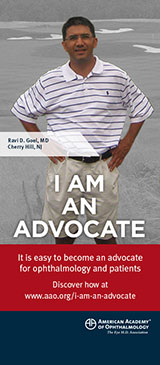 I attended my first Congressional town hall as a first-year medical student. I entered medical school at the height of the Clinton health care initiative and had just returned from an AMA medical student meeting. I benefited from workshops on advocacy, networking and public speaking. The aspiring physicians were encouraged to reach out to their local legislators about issues important to patients and the profession.
I attended my first Congressional town hall as a first-year medical student. I entered medical school at the height of the Clinton health care initiative and had just returned from an AMA medical student meeting. I benefited from workshops on advocacy, networking and public speaking. The aspiring physicians were encouraged to reach out to their local legislators about issues important to patients and the profession.
Throughout medical school, I followed competing legislation and debates among broad coalitions of stakeholders, which included physicians, patients, hospitals, employers and the government. I spent more time reading the New York Times and health policy articles than studying microbiology and pathology.
When I entered private practice, I became involved in my state ophthalmology society and served on the Academy’s Young Ophthalmologist Committee. I once attended a meeting between state society leaders and our lobbyists about legislation to expand optometric scope of practice to include laser and incisional surgery. Our lobbyists had met with influential legislative leadership and used phrases such as, “They’ll give you this but not that.” “They owe them for the last cycle.” “It’s just lumps and bumps” … and, “This is the line in the sand.”
I wondered about the value of my medical and surgical training — with $100k+ in student loans — as I sat in a high-pressure meeting to determine which group of “O’s” could perform which procedures. I was most concerned about patient safety and the spirit of Hippocrates’ “do not harm” oath that was missing from the conversation. I then turned and whispered to one of our lobbyists, “Who is representing the patients?” She looked at me, puzzled, and said, “No one.”
I quickly realized that a critical role for a physician is to be a citizen lobbyist. As ophthalmologists, we must continue to represent the best interests of our patients in the exam room, the statehouse and Washington D.C. As part of the Academy’s 2004 Leadership Development Program, I gave a presentation at the U.S. Capitol on the risks of laser surgery. The Academy gave me a team of specialists to prepare my talk — physician colleagues, lobbyists, lawyers, media and wonderful staff — and had a special YAG laser cleared through the Capitol Police for a live demonstration.
We educated members of Congress and their staff on the dangers of laser surgery when performed by non-ophthalmologists. Our nation’s veterans were fortunate that the Veterans Administration later issued a multi-year moratorium preventing optometrists from performing laser procedures at VA facilities.
I still meet with state and federal legislators to network about ophthalmology, medicine and patient care issues. And the Congressman I met during my first year of medical school in 1994 is still in office today. Though I no longer live in his district, I continue to attend his events and have maintained a 20-year relationship with his office. His chief of staff takes my calls.
Ravi D. Goel, MD, a comprehensive ophthalmologist, serves on the AAOE Board of Directors and AMA Ophthalmology Section Council.